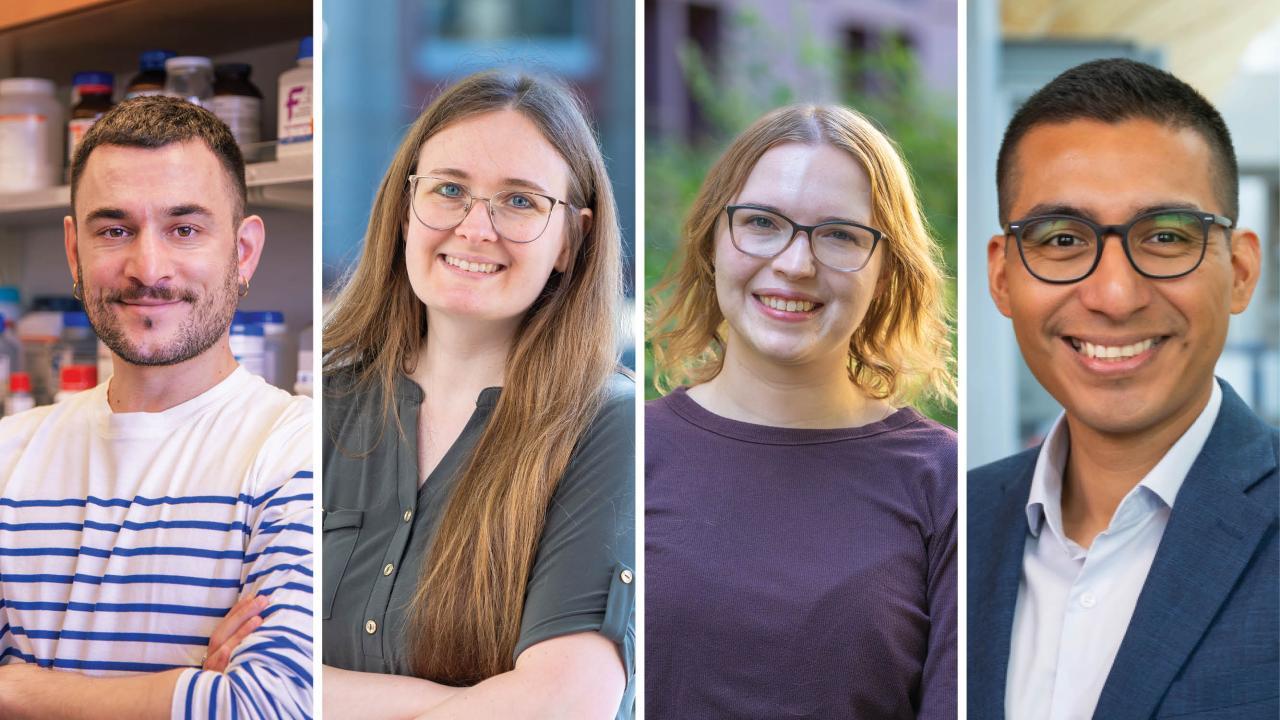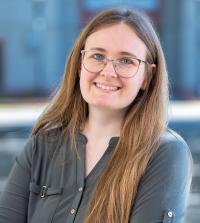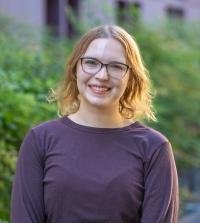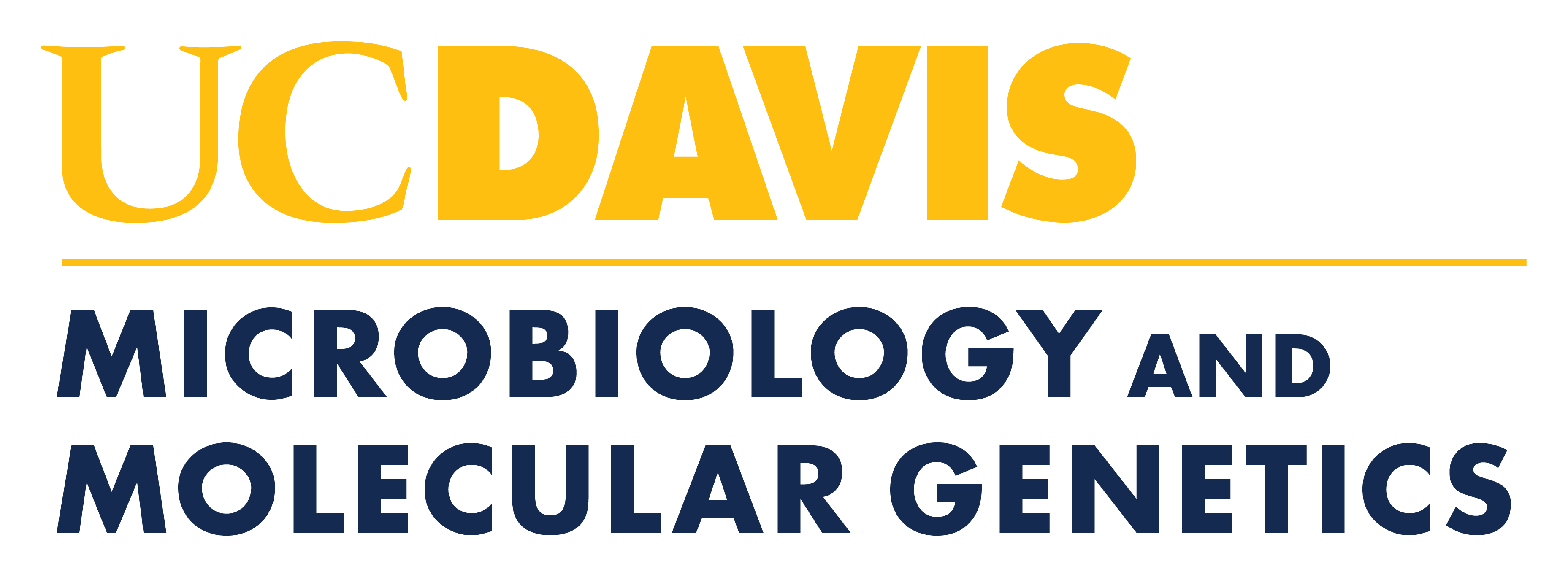
CBS Welcomes Four New Faculty With Wide-Ranging Expertise
New faculty bring expertise in plant–environment interactions, inclusive STEM pedagogy, microbiota research, and archaeal biology
The college is very pleased to have welcomed four new faculty during the 2025 calendar year. Joining the Departments of Microbiology and Molecular, Evolution and Ecology, and Molecular and Cellular Biology, each new faculty member adds expertise and breadth to the college’s research and teaching portfolio.
“The college’s newest faculty, who are both researchers and teachers, are poised to continue our legacy of excellence in foundational life sciences exploration, as well as exceptional student teaching and mentorship,” said Mark Winey, dean of the College of Biological Sciences. “I am thrilled to welcome them to campus.”
The new faculty began at varying times in the 2025 calendar year, with two arriving during the 2024-25 academic year (July 1, 2024 to June 30, 2025), and two arriving in the 2025-26 academic year (July 1, 2025 to June 30, 2026).
With expertise ranging from plant-environment interactions and inclusive STEM education, to archaeal cell biology and host–microbiota–pathogen dynamics, they will make significant contributions to the excellence and scientific breadth of the college.

Arthur Charles-Orszag
Assistant Professor
Department of Microbiology and Molecular Genetics
Arthur Charles-Orszag’s research explores the fundamental cell biology of archaea, the third domain of life and the evolutionary cradle of eukaryotes. Although archaea inhabit diverse environments ranging from acidic hot springs to the human gut, little is known about their cellular mechanisms due to technical barriers in imaging extremophilic model species. Charles-Orszag’s lab develops new tools to enable quantitative live imaging of archaeal cells under physiological conditions, overcoming challenges posed by extreme growth requirements such as 76°C and pH 2 for Sulfolobus acidocaldarius. Combining biochemical, structural, genetic, and bioinformatic approaches, his lab investigates archaeal cell division, motility, and chromosome segregation. These studies provide critical insights into eukaryogenesis—the evolutionary emergence of eukaryotes from archaeal-bacterial symbiosis—by clarifying the cellular complexity of the first eukaryotic ancestors. By advancing archaeal cell biology, Charles-Orszag’s work addresses longstanding gaps in our understanding of life’s evolutionary history while also generating broader tools and frameworks for studying extremophiles. His research ultimately illuminates how fundamental cellular processes evolved and diversified across domains of life.

Robin Decker
Assistant Professor of Teaching
Department of Evolution and Ecology
Robin Decker’s work focuses on advancing ecology education through inclusive teaching, quantitative reasoning, and student-centered course design. Her research examines how undergraduates engage with mathematical modeling, data analysis and computational tools, and how these approaches can make complex ecological concepts accessible and meaningful. Decker’s teaching philosophy emphasizes creating learning environments that foster belonging, identity, and confidence for all students. She integrates collaborative, place-based experiences such as Course-Based Undergraduate Research Experiences (CUREs) and field projects, which build cultural relevance, community, and motivation in STEM cohorts. Her investigations into how course structure and pedagogy shape student persistence and self-efficacy provide evidence-based strategies for reducing barriers and enhancing engagement. Alongside her education-focused research, Decker brings expertise in theoretical population biology and spatial ecology to her teaching, modeling the connections between disciplinary knowledge and real-world environmental issues. By bridging inclusive pedagogy with ecological scholarship, she helps students develop the quantitative and critical thinking skills necessary for success in modern biology, while cultivating a sense of belonging that supports their long-term growth as scientists.

Angelica Guercio
Assistant Professor of Teaching
Department of Molecular and Cellular Biology
Angelica Guercio’s work centers on biology education and inclusive pedagogy, with the goal of fostering scientific literacy, identity, and success for students in biochemistry and molecular biology. Her research examines how evidence-based teaching practices help students not only master course content but also think, read, write, and engage like scientists. She incorporates assignments such as Scientist Spotlights and reflective dialogues that connect students with the lives and work of established scientists, building confidence and a sense of belonging in STEM. Guercio also investigates how course structures and assessment strategies shape transfer student outcomes in large lecture classes, testing approaches such as diagnostic modules and flexible assessments to reduce barriers and improve equity. Her teaching philosophy emphasizes growth mindset, inquiry-driven learning, and individualized mentorship, ensuring that students feel supported while developing autonomy as scientists. By integrating inclusive pedagogy with authentic classroom experiences, Guercio seeks to create transformative learning environments that cultivate curiosity, resilience, and long-term engagement in science.

Antonio Serapio-Palacios
Assistant Professor
Department of Microbiology and Molecular Genetics
Antonio Serapio-Palacios’s research investigates the dynamic interactions between the gut microbiota, intestinal pathogens, and the host. His work focuses on understanding colonization resistance (the ability of commensal microbes to block pathogens from establishing in the gastrointestinal tract) and the strategies pathogens use to overcome this barrier. His lab integrates molecular microbiology, cell biology, and mucosal immunology to examine how bacterial proteins and metabolites manipulate host processes and alter microbiota composition. Using animal models of infection with pathogenic Escherichia coli, Citrobacter rodentium, and Salmonella typhimurium, along with tissue culture systems and in-vitro competition assays, his lab aims to dissect the molecular mechanisms underlying interbacterial competition and host subversion. Serapio-Palacios’ research goals include identifying bacterial factors that shape pathogen-host-microbiota interactions and clarifying how these interactions influence infection outcomes. This work has broad implications for combating gastrointestinal diseases, as it reveals pathways that could be targeted to develop novel therapeutic strategies. By uncovering the molecular basis of microbiota-pathogen-host interplay, his research may help reduce the burden of life-threatening enteric infections.
